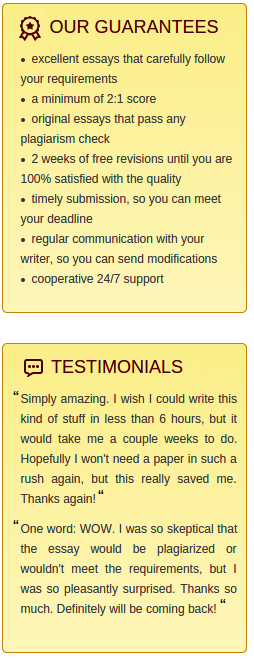How (and how not) to Write a Literary Essay
Monday, May 17th, 2010Literary essays are quite complex to prepare
Many students confuse this task with writing a literary review, and they are not exactly the same. In fact, writing a literary essay is a bit more complicated, since in a review one is supposed to discuss the overall effect and literary quality of a certain work, but in an essay one must pay more attention to specific details. Literary essays explore the meaning, the themes and the construction of a work of literature (a poem, a short story or a novel).
When writing an essay on literature, you should focus on such elements as style, tone, structure, theme or character. Besides, you should choose a topic within a certain work, and not write an essay about the work itself as a topic, since a very wide topic will result in a very shallow analysis. Literary essays then, are not supposed to be shockingly original but solid, well-based on personal readings and logically sustained. Here are a few tips on how to success if this is what you were asked to write.
Avoid “storytelling”
In literary essays, it is not recommended to fill paragraphs with a summary of the plot. The reader has read the book (at least we may assume that), so have you, you don’t need to prove it by retelling the story. Go straight to the main point and discuss specific story details only when relevant to your topic of choice. For example, if you are writing an essay on the topic of children’s education in Dickens’ novel Oliver Twist, there is no need to retell the scene of the murder of Nancy.
Avoid biographies
A good literature essay should not care too much about the biography of the author. Do not waste valuable time (and lines) providing the life facts of an author unless they are strictly pertinent to your essay topic. For example, if you are writing an essay on feminism in Jane Eyre, you may mention that Charlotte Brontë started publishing under a man’s name. But there is no need to mention the death of tuberculosis of one of her sisters.
Using sources
Your literary essay can be written from your own interpretation and ideas on your reading of the book, or it may mix your opinions with references to literary criticism of others. In that case, always remember to quote the source (author, book, pages, etc) since inappropriate quoting could lead you to severe plagiarism accusations. Always introduce the quotes with a colon and using quotation marks. Keep the quotes short, avoid quoting a whole paragraph when the main idea you want to express is said in a single sentence. Appropriate quoting will show the reader your professionalism.
Besides, even if you decide to quote many critics, show somehow in your essay your own opinion one way or the other, ate least agreeing or disagreeing. After all, you should have your particular point of view on the work (which will certainly require some preliminary readings). And that is what the reader is most interested in.




